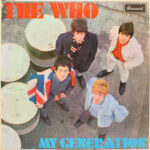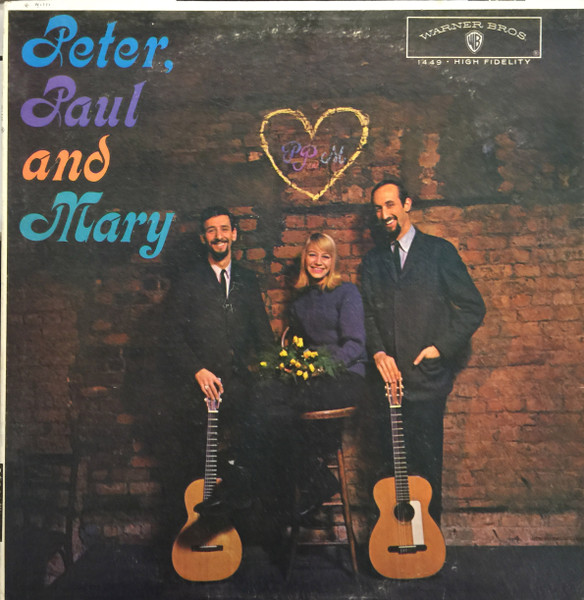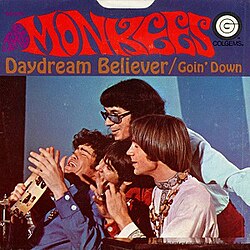 Some songs don’t just reflect an era—they set it on fire. “My Generation” by The Who, released in 1965, wasn’t simply a rock single; it was a declaration, a battle cry, and a blueprint for how youth rebellion would sound for decades to come. From the moment Roger Daltrey’s snarling, stuttering vocal kicks in, the track radiates a kind of electric impatience, the feeling of young people tired of being told who to be, where to go, and how to behave. It’s a song that speaks directly to frustration, identity, and the refusal to fade politely into adulthood. More than half a century later, that spirit still pulses through every note.
Some songs don’t just reflect an era—they set it on fire. “My Generation” by The Who, released in 1965, wasn’t simply a rock single; it was a declaration, a battle cry, and a blueprint for how youth rebellion would sound for decades to come. From the moment Roger Daltrey’s snarling, stuttering vocal kicks in, the track radiates a kind of electric impatience, the feeling of young people tired of being told who to be, where to go, and how to behave. It’s a song that speaks directly to frustration, identity, and the refusal to fade politely into adulthood. More than half a century later, that spirit still pulses through every note.
At the time of its release, rock music was transforming rapidly—expanding beyond danceable pop into something more volatile, expressive, and socially meaningful. The Who, a band already gaining traction for their explosive stage antics and mod audience, tapped into the growing belief that teenagers weren’t just decoration in the musical landscape—they were the force reshaping it. “My Generation” became the anthem for that shift, distilling the angst, humor, and razor-sharp attitude that defined mid-60s youth culture. When Daltrey belts out, “Hope I die before I get old,” it isn’t a morbid fantasy; it’s a rejection of complacency. A dare, even. The song captured the exact moment when youth culture realized its own power, and it remains one of the most important rock tracks ever recorded.
A Sound as Aggressive as the Message
Musically, “My Generation” was unlike anything the rock world had heard in 1965. Built on a driving, almost chaotic arrangement, the track embraced distortion and volume in a way that prefigured the harder edges of rock to come. Pete Townshend’s guitar chops and windmill-style slashes gave the song its raw backbone. John Entwistle, one of the most technically advanced bassists of the era, delivered a groundbreaking bass solo—something rarely heard in pop or rock at the time. His fast, melodic run is still analyzed and admired, a reminder that The Who weren’t just loud—they were skilled.
Keith Moon’s drumming is a performance unto itself. Rather than keeping a steady beat, he detonates across the kit like a controlled explosion, adding frantic flourishes that mirror the song’s restless tone. Moon didn’t simply play rhythm; he played character. His drumming embodies the track’s tension, unpredictability, and barely-contained fury.
The result is a song that feels like a musical rebellion as much as a lyrical one. The stops and starts, the controlled chaos, the ferocity—everything reinforces the idea of rejecting structure, rejecting polite society, rejecting the kind of rock music that played it safe. In many ways, “My Generation” was a proto-punk song long before punk existed. The distorted bass, the shouted vocals, and the sense of impatience would inspire artists from The Clash and Sex Pistols to Nirvana and Green Day. It’s a track that opened a door many bands would later storm through.
The Stutter Heard Around the World
One of the most recognizable elements of “My Generation” is its deliberate stuttering vocal delivery. “People try to put us d-d-down…” feels both playful and aggressive. There have been many interpretations of this stylistic choice over the decades. Some have argued that it mimics a frustrated youth struggling to spit out their anger. Others say it was meant to imitate the speech patterns of amphetamine-fueled mod culture. Pete Townshend himself once commented that it simply fit the musical style and attitude of the song.
Regardless of intention, the stutter became one of the most iconic vocal techniques in rock history. It gave the song character, urgency, and edge. It turned what could have been a straightforward line into something explosive, unpredictable, and utterly distinct. The BBC initially considered banning the song for fear that listeners would interpret the stutter as mocking those with speech impediments, but the track’s popularity eventually made such concerns irrelevant.
The brilliance of the stutter isn’t just in the shock factor—it’s in how perfectly it complements the song’s themes. This is a track about frustration, constraint, and the difficulty of being heard. The stammering vocal isn’t just a quirk; it’s an emotional weapon.
Lyrical Rebellion That Defined a Generation
Pete Townshend’s writing in “My Generation” is sharp, rebellious, and unapologetically confrontational. The lyrics call out judgmental adults, restrictive social norms, and the sense of being dismissed simply for being young. This wasn’t the typical love-song fare dominating the charts. It wasn’t polished or poetic in a traditional sense. It was raw and combative.
“Why don’t you all fade away?” is one of the boldest lines of the era, delivered with a sneer that still feels transgressive today. It’s a direct challenge to authority, a refusal to accept that older generations automatically know better. In 1965, that kind of sentiment was groundbreaking.
But the most famous line is, of course, “Hope I die before I get old.” While some interpreted it as nihilistic, the true meaning is more layered. It’s a vow not to lose one’s spark, creativity, or sense of rebellion—not to become the kind of person who judges others for simply existing differently. It’s a line about authenticity, not self-destruction.
Because the song directly confronted generational conflict, it resonated intensely with young people who felt misunderstood, overlooked, and underestimated. The 1960s youth culture was beginning to see itself as separate from the world of their parents, and “My Generation” gave that divide a soundtrack.
Cultural Impact and the Birth of the Rock Antihero
“My Generation” didn’t just become a hit—it shaped the entire persona of The Who. The band became synonymous with explosive performances, smashed instruments, and youthful fury. Their concerts were chaotic in the best way, with Townshend windmilling his guitar, Entwistle calmly anchoring the storm, Daltrey swinging his microphone like a lasso, and Moon wreaking havoc on the drum kit. The band embodied the energy of the song, turning it into performance art.
This song also carved out the role of the “rock antihero.” Instead of portraying musicians as clean-cut, polite entertainers, “My Generation” helped introduce the idea that rock stars could be irreverent, confrontational, and even self-destructive. Without The Who’s approach, the rebellious personas of later acts—The Rolling Stones, The Stooges, Ramones, Pearl Jam—would look very different.
Another important cultural effect was the song’s influence on fashion and social identity. The mod movement—sharp suits, scooters, a sense of rebellious cool—was already in full swing in Britain, but “My Generation” became its anthem. It wasn’t just a song; it was a lifestyle statement.
Longevity and Legacy
Over time, “My Generation” has only grown in stature. It’s frequently cited as one of the greatest rock songs ever recorded, appearing on countless “best of” lists and receiving permanent placement in discussions of rock’s evolution. The rawness that once shocked listeners now feels visionary.
At live shows, the track still ignites crowds, even decades after its release. New generations connect with its message of frustration and independence, proving that the emotional core of the song isn’t locked in 1965. In an era of rapid cultural change, digital identity, and constant scrutiny, young people still feel the pressure to conform—and they still find release in the song’s defiance.
One of the most powerful parts of the track’s legacy is its role in shaping punk and alternative rock. Bands from The Jam to Green Day to The Who’s own acolytes in the grunge generation have acknowledged its impact. The blend of aggression, simplicity, and attitude is practically the DNA of punk.
Conclusion: A Song That Refuses to Age
“My Generation” endures because it taps into something eternal: the desire for self-definition. Released in 1965 during a cultural revolution, it gave youth a collective voice that demanded to be heard. Musically ferocious, lyrically unfiltered, and emotionally potent, the track remains a defining moment in rock history.
The Who didn’t just write a hit—they captured the emotional truth of a moment that repeats in every generation. The anger, the hope, the impatience, the desire to grow without losing yourself—all of it lives inside this explosive anthem.
And more than half a century later, it still sounds like a challenge. A promise. A warning.
A song that refuses—utterly and absolutely—to get old.


